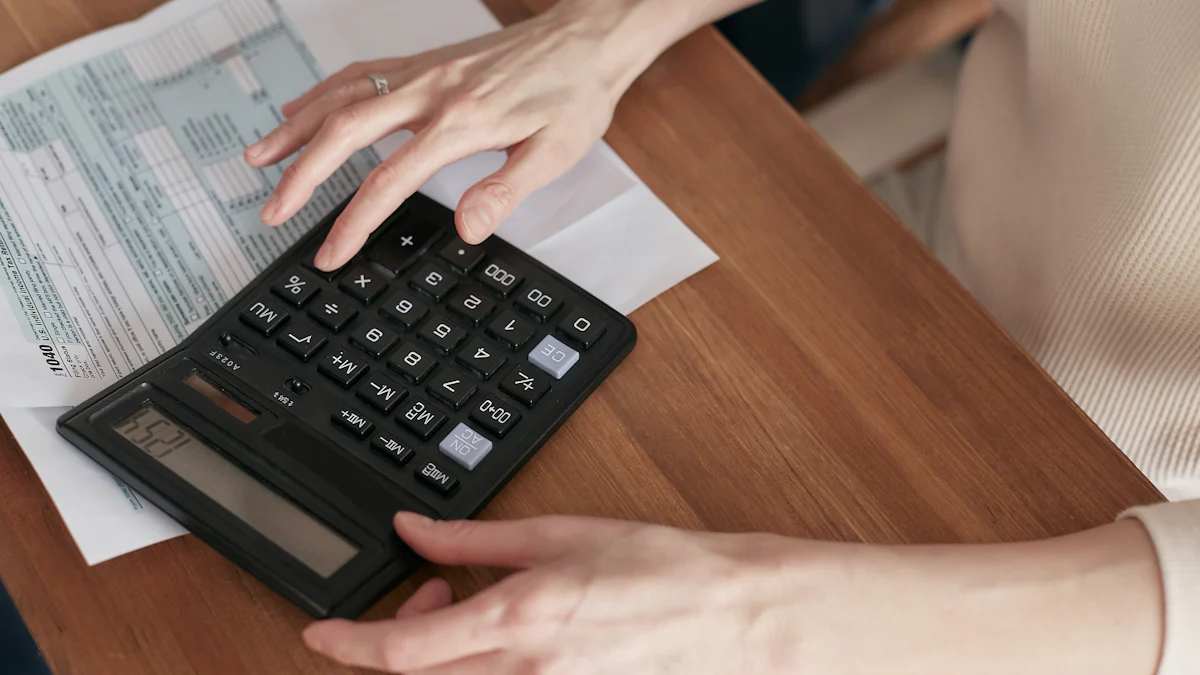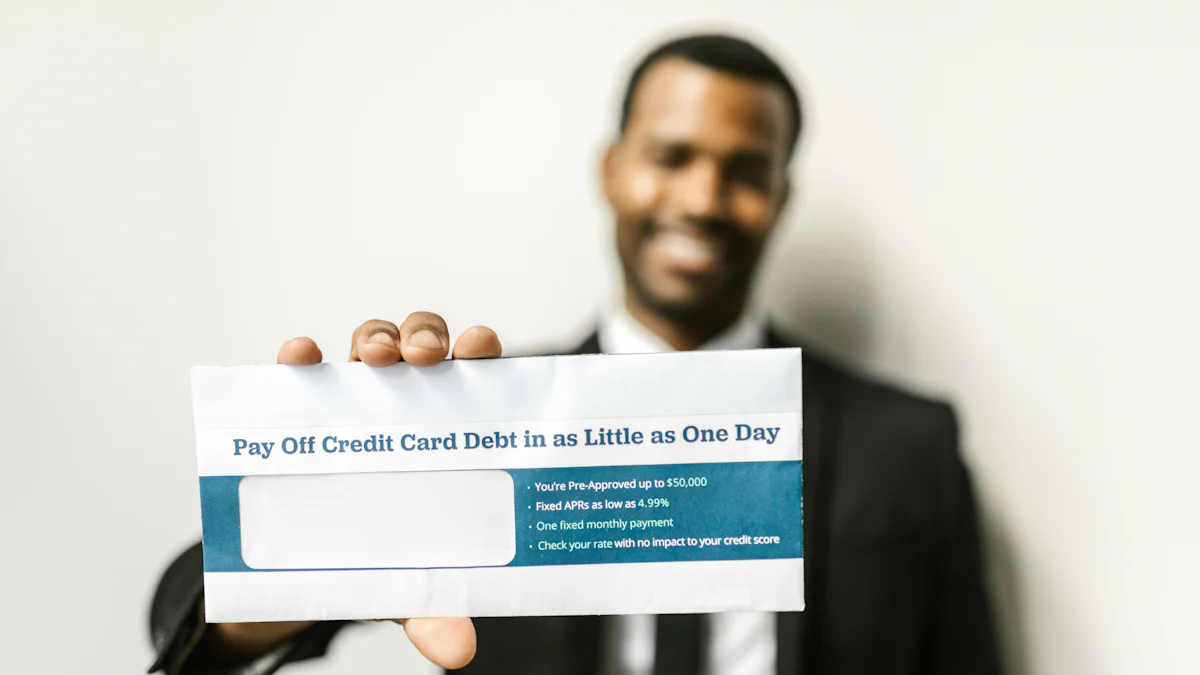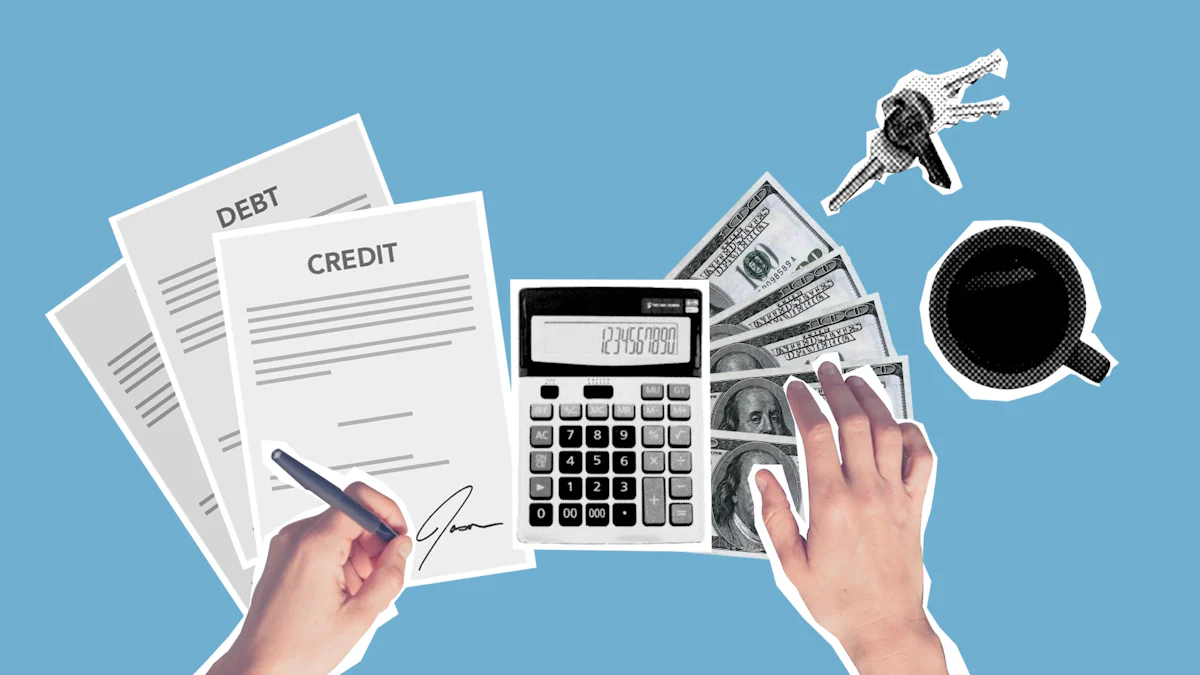The Best Ways to Consolidate Debt with Poor Credit Scores

The Best Ways to Consolidate Debt with Poor Credit Scores
Image Source: pexels
Struggling with debt and a poor credit score can feel overwhelming, but don’t lose hope—you can turn things around. Debt consolidation offers a way to simplify your payments and regain control of your finances. Start by assessing where you stand. Calculate your debts, set clear goals, and create a plan to tackle them. Even with bad credit, options like personal loans for debt consolidation with bad credit can help you move forward. Taking that first step toward financial stability is the key to lasting change.
Key Takeaways
-
Debt consolidation combines many debts into one payment. This helps you manage money better.
-
Choices like credit counseling or loans for bad credit can help. These work even if your credit score is low.
- Making a budget and paying on time can raise your credit score. Do this while working on combining your debt.
Understanding Debt Consolidation
What Is Debt Consolidation?
Debt consolidation is a way to combine multiple debts into one single payment. Instead of juggling several due dates and interest rates, you simplify everything into one loan. This can make managing your finances less stressful and more organized.
Here’s how it works:
-
Pull your credit score to understand where you stand.
-
Calculate your total debts to figure out how much you need to borrow.
-
Prequalify with lenders to see your chances of approval.
-
Compare offers to find the best rates and terms.
-
Apply for the loan that suits you best.
- Once approved, receive the funds, which are either sent to you or directly to your creditors.
This process can help you take control of your finances, even if your credit score isn’t perfect.
Benefits of Debt Consolidation
Debt consolidation offers several advantages, especially if you’re struggling with poor credit.
-
Pay Off Debt Faster: By reducing interest rates, you can eliminate debt quicker and focus on other financial goals.
-
Build Credit With On-Time Payments : Making consistent payments on your new loan can improve your credit history over time.
- Simplify Payments : Instead of managing multiple bills, you only have to worry about one monthly payment.
For example, personal loans for debt consolidation with bad credit can help you streamline your payments and work toward financial stability.
Challenges of Consolidating Debt with Poor Credit
Consolidating debt with a low credit score isn’t without its hurdles. Some common misconceptions might make you hesitant to take the leap:
-
Debt consolidation is a scam. In reality, it’s a legitimate way to manage your debts.
-
It will hurt your credit. While your score might dip temporarily, it can improve as you make timely payments.
- It leads to more debt. Debt consolidation doesn’t create new debt; it simply combines existing ones.
Another challenge is finding lenders willing to work with poor credit. However, options like personal loans for debt consolidation with bad credit or secured loans can make this process easier.
Tip : Always compare offers and read the fine print to avoid high fees or unfavorable terms.
Best Options for Debt Consolidation with Poor Credit

Image Source: pexels
Credit Counseling Services
Credit counseling services can be a great starting point if you’re unsure how to tackle your debt. These nonprofit organizations offer professional advice to help you manage your finances. They provide a free initial session to evaluate your budget and debts. If you choose to enroll in a debt management program, the average fee is around $40, with a maximum cap of $79. Compared to other debt relief options, these costs are much lower, making credit counseling an affordable choice.
A counselor can also negotiate with creditors on your behalf. This might result in lower interest rates or waived fees, which can make a big difference. By consolidating your payments into one monthly amount, you’ll find it easier to stay on track.
Secured Loans (e.g., Home Equity Loans or Auto Loans)
Secured loans, like home equity loans or auto loans, allow you to borrow money using your property as collateral. These loans often come with lower interest rates, which can save you money in the long run. However, there’s a significant risk involved.
The biggest drawback is you could lose your home to foreclosure if you default on the loan, since these products act as second mortgages.
If you decide to go this route, make sure you can handle the payments. Missing them could lead to serious consequences.
Personal Loans for Debt Consolidation with Bad Credit
Personal loans for debt consolidation with bad credit are another option to consider. Some lenders specialize in working with individuals who have poor credit. While the interest rates might be higher, these loans can still help you combine multiple debts into one manageable payment. This simplifies your finances and gives you a clear path to becoming debt-free.
When applying, compare offers from different lenders. Look for reasonable terms and avoid loans with excessive fees. Making on-time payments on your personal loan can also improve your credit score over time.
Debt Consolidation Loans with a Co-Signer
If your credit score is holding you back, a co-signer might help. A co-signer with good credit can increase your chances of approval and even secure better loan terms. This can make debt consolidation more affordable.
However, there are risks for the co-signer. They become legally responsible for the loan if you fail to make payments. Their credit score could also take a hit. Before asking someone to co-sign, make sure you’re confident in your ability to repay the loan.
Debt Management Plans (DMPs)
Debt management plans (DMPs) are a structured way to consolidate your debts. With a DMP, you make one monthly payment to a plan administrator, who then distributes it to your creditors. These plans typically last 3 to 5 years, giving you a clear timeline for becoming debt-free.
DMPs offer several benefits:
-
They simplify your payments, reducing financial stress.
-
Counselors negotiate lower interest rates, saving you money.
- Overdue accounts can become current after consistent payments, helping your credit recover.
You don’t need good credit to qualify for a DMP, making it an excellent option if you’re struggling with poor credit.
Steps to Improve Credit Scores While Consolidating Debt

Image Source: pexels
Create and Stick to a Budget
Creating a budget is one of the most effective ways to regain control of your finances. Start by listing all your income sources and monthly expenses. Divide your expenses into two categories: essential (like rent, utilities, and groceries) and non-essential (like dining out or subscriptions). Once you’ve identified areas where you can cut back, allocate those savings toward paying off your debt.
Stick to your budget by tracking your spending regularly. Use budgeting apps or a simple spreadsheet to stay organized. Remember, every dollar you save brings you closer to financial freedom.
Negotiate with Creditors for Better Terms
Talking to your creditors might feel intimidating, but it can make a big difference. Many creditors are willing to work with you if you explain your situation. Start by knowing your goals—whether it’s reducing your interest rate, waiving late fees, or setting up a payment plan.
If you have cash on hand, offer to make an immediate payment in exchange for a reduced balance. Creditors may also agree to settle for less if they know you’re considering bankruptcy. Aim to pay 50% or less of your unsecured debt, but always start with a lower offer to leave room for negotiation.
Monitor Your Credit Report for Errors
Errors on your credit report can drag down your score, so it’s crucial to check it regularly. Common mistakes include identity errors (like a wrong name or address), incorrect account statuses (such as closed accounts reported as open), and balance errors. According to the Federal Trade Commission, one in five people has at least one error on their credit report.
Visit AnnualCreditReport.com to get a free copy of your report from each of the three major credit bureaus. If you spot any inaccuracies, dispute them immediately. Correcting these errors can boost your credit score and improve your chances of getting better loan terms.
Make Consistent, On-Time Payments
Your payment history is one of the biggest factors affecting your credit score. Late or missed payments can hurt your score, while consistent, on-time payments can help it recover. Set up automatic payments or reminders to ensure you never miss a due date.
Even if you can only afford the minimum payment, it’s better than skipping it altogether. Over time, your commitment to paying on time will reflect positively on your credit report.
Avoid Taking on New Debt
While consolidating your debt, it’s important to avoid adding to it. Resist the temptation to open new credit cards or take out additional loans. Focus on paying off what you already owe.
If you’re struggling with impulse spending, consider leaving your credit cards at home or freezing them temporarily. By staying disciplined, you’ll make steady progress toward becoming debt-free.
Consolidating debt with poor credit isn’t easy, but it’s possible. Explore options like credit counseling, secured loans, or debt management plans. Take small, consistent steps toward your goals. If you’re unsure, seek professional advice. With persistence and the right approach, you can rebuild your finances and create a brighter financial future.
FAQ
What if I can’t qualify for a debt consolidation loan?
If you can’t qualify, explore alternatives like credit counseling or debt management plans. These options don’t require loans and can still help you manage your debt.
Will debt consolidation hurt my credit score?
Debt consolidation might cause a temporary dip in your score. However, consistent on-time payments can improve your credit over time, making it a smart long-term strategy.
Tip : Set up automatic payments to avoid missing due dates and boost your credit score faster! 💡
Can I consolidate debt without using a loan?
Yes! Debt management plans or negotiating directly with creditors can help you consolidate debt without taking out a loan. These options simplify payments and reduce financial stress.